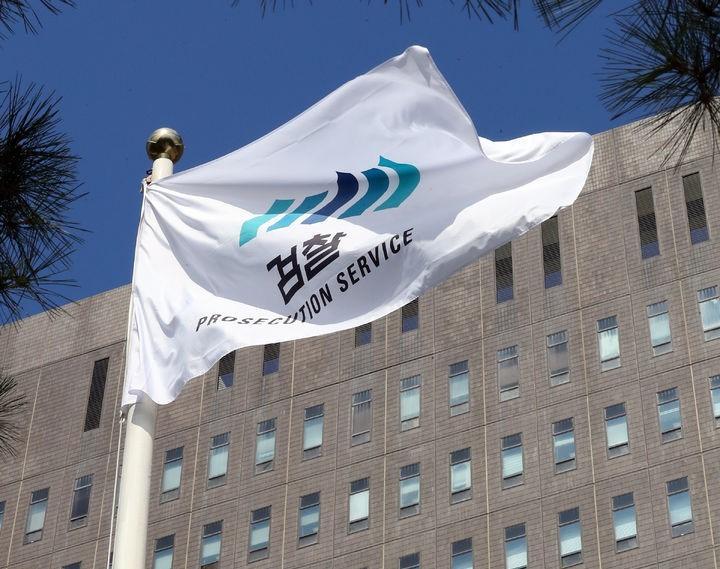WNAM REPORT: A controversy has arisen over the prosecution’s review of the telecommunication user information of several opposition politicians and journalists, including former Democratic Party of Korea (DPK) leader Rep. Lee Jae-myung, according to legal and political circles Monday.
The anti-corruption investigation division of the Seoul Central District Prosecutors’ Office examined the telecommunication subscriber information for January this year of individuals who had exchanged calls or text messages with the main suspects in their investigation into the alleged manipulation of public opinion during the presidential election of 2022.
Some seven months after the prosecutorial inquiry took place, the fact that the prosecution reviewed this data was disclosed last Friday to those whose information was checked.
The prosecution stated that this was a “completely lawful inquiry conducted during the investigation process.”
According to the Korean legal system, telecommunication user information refers to personal details of telecom subscribers, such as names, resident registration numbers, addresses and phone numbers, which can be accessed without court approval.
This is different from more private information called “communication confirmation data,” which includes records of who communicated with whom and when, as well as base station location data. A court warrant is required to access communication confirmation data.
Despite the prosecution’s assertion that their actions were lawful, the DPK denounced the act, calling it a clear suppression of the opposition party.
During a supreme council meeting on Monday, Rep. Park Chan-dae, the acting leader and floor leader of the DPK, stated, “The ugly face of dictatorship has been exposed to the entire world. Have they become so blinded by the suppression of the people and the opposition that they’ve lost all sense of restraint?”
The opposition party also raised questions about the delayed notification. Legally, notifications must be made within 30 days after the review of telecommunication data is conducted.
“So why was the telecommunication inquiry conducted in January only disclosed in August?” the party emphasized, calling it “surveillance over the opposition.”
However, the prosecution dismissed such allegations. An official from the Seoul Central District Prosecutors’ Office explained that the months-long delay in notification is allowed by law.
The Telecommunications Business Act stipulates that notifications should be made within 30 days, but it allows for a delay of up to six months if there are concerns about obstructing judicial procedures, invading privacy or delaying administrative procedures.
“Even if someone is merely an acquaintance of the key suspects in the investigation, there is a risk that if they become aware of the ongoing communication inquiry and its purpose, this information could be leaked to the suspects, potentially leading to the destruction of evidence and other obstructions to the fair progress of judicial procedures. Therefore, we postponed the notification according to the provisions of the act and disclosed within the legally deferred period,” the prosecution explained, saying the opposition’s describing the lawful action as “surveillance” is a malicious distortion.
Long-held practice
Experts note that this issue has been persistent not only during the current Yoon administration but also during the previous Moon Jae-in administration. It has been a longstanding problem in Korea, and one key reason it remains unresolved is the failure of a proposed amendment to the Telecommunications Business Act to pass through the National Assembly.
“Although the regulations require notification of telecommunication information queries within one month to those whose information was reviewed, exceptions allow for a six-month delay in certain circumstances. However, there is no penalty for noncompliance, so this is often not adhered to in practice. Thus, adding disciplinary regulations to the Telecommunications Business Act and its enforcement decrees would improve the situation,” Lim Gyeo-cheol, a professor of law and dean at Dongguk University Law School, told The Korea Times on Monday.
“Additionally, an improvement would be to ensure that the review of telecommunications user information is conducted only when there are well-founded suspicions of wrongdoing rather than based solely on doubts. The law states ‘as necessary for the investigation,’ which allows for broad interpretation by investigative agencies. Therefore, it is important to specify ‘when necessary’ in subordinate regulations under the law.”
The National Human Rights Commission of Korea had recommended amending the law 10 years ago, citing its contradiction with the principle of warrant-based investigation. However, the amendment has yet to pass through the National Assembly.
International human rights organizations have also expressed negative opinions about Korean investigative agencies’ access to telecommunication data. In 2017, David Kaye, the U.N. special rapporteur on the promotion and protection of the right to freedom of opinion and expression, submitted an opinion to the Constitutional Court of Korea, stating that “state agencies’ ability to request telecommunication user information without a prior warrant breaches the principles of legality, necessity and proportionality” and “violates Korea’s obligation to protect the freedom of anonymous expression and communication.”


